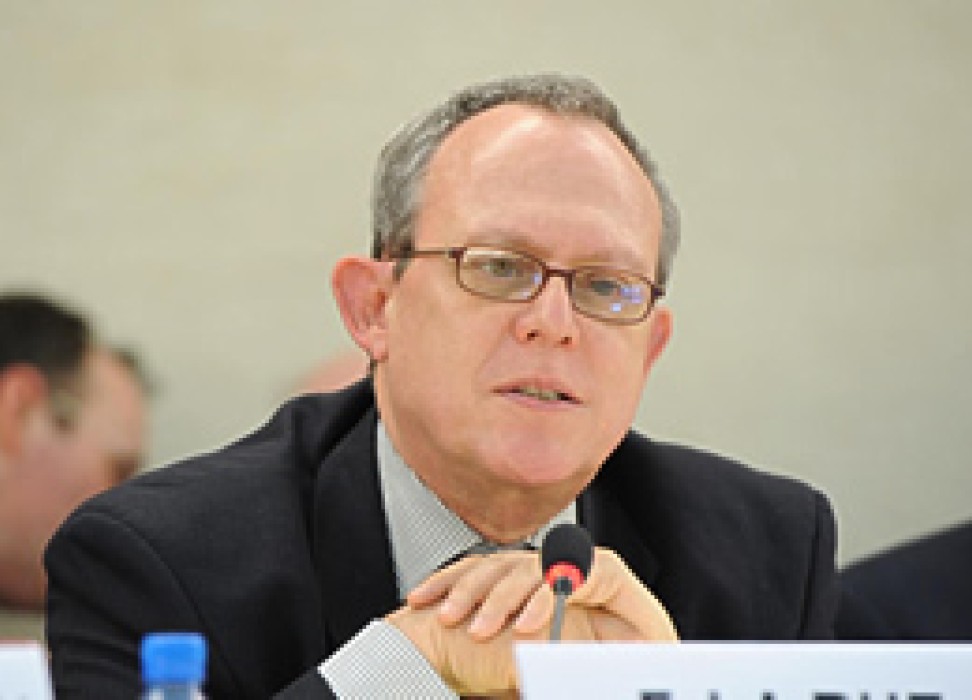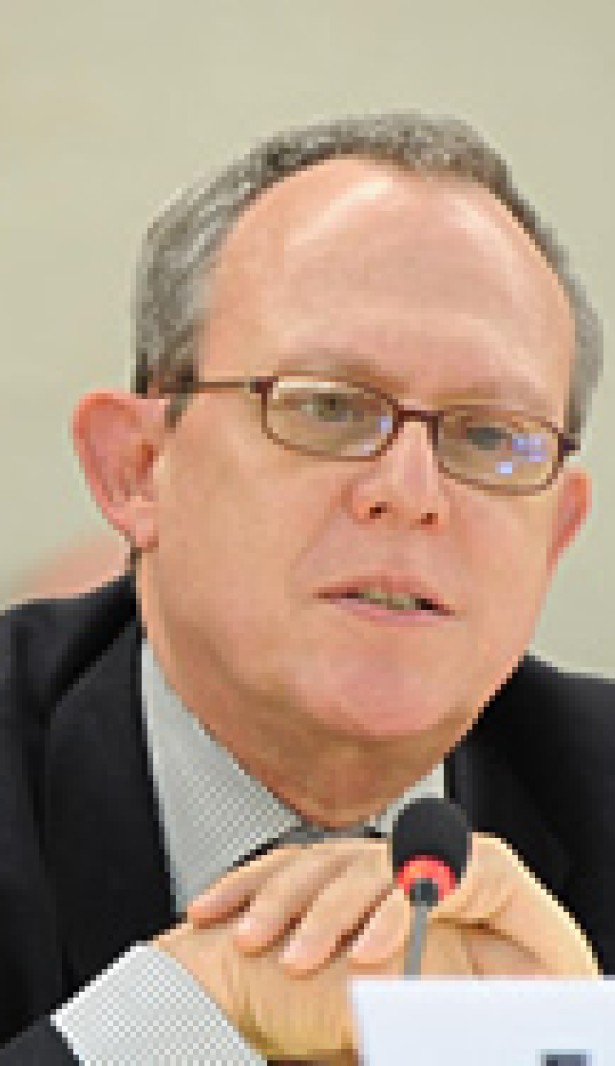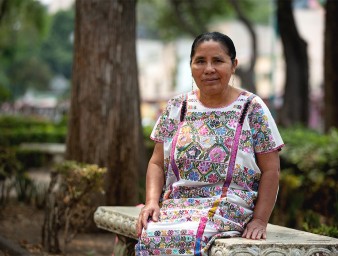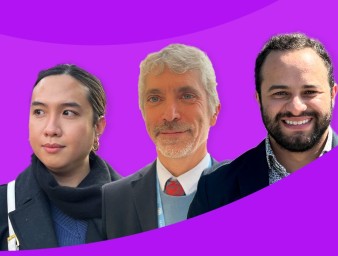States should respect people’s right to privacy - UN expert
19 July 2013

“States’ ability to conduct surveillance is no longer limited by its scale or duration thanks to technological advances. These have facilitated invasive and arbitrary monitoring of individuals, who may not even be able to know they have been subjected to such surveillance, let alone challenge it,” noted the UN Special Rapporteur on Freedom of Expression.
In his latest report, La Rue underscored that States should respect individuals’ right to privacy and freedom of expression as recognized by international law.
Modern technology, the expert revealed, has enabled States to almost completely control online and telecommunications: by placing taps on fibre-optic cables, State surveillance authorities can listen and record individuals’ communications, track specific mobile calls or intercept messages, apply word or speech recognition, and monitor the content of websites, social networks, blogs and other media.
“How are these surveillance initiatives regulated at national level? Who are the authorities mandated to authorize and to implement surveillance? What is the destiny of the massive amounts of information being monitored today?” La Rue asked. “These are some questions that urgently need to be studied in all regions of the world to ensure a better protection of both the right to privacy and freedom of expression.”
He noted that, however, as with other rights, privacy could be limited in exceptional circumstances - such as when faced with concerns of national security and criminal activity – while finding that national laws to regulate such necessity in the context of a democratic society were often inadequate.
La Rue further noted that although surveillance had usually been authorized by the judiciary, this requirement was increasingly weakened or removed in recent laws. He also found that unspecified notions of “national Security” had become an acceptable justification for the interception of communications in many countries.
The Rapporteur stressed that the private sector had also played a key role in facilitating the surveillance of individuals by designing digital networks and communications infrastructure to enable intrusion by the State. Commercial enterprises had also gone as far as developing technologies that fostered mass surveillance.
“States cannot enable individuals to seek and receive information or express themselves freely without respecting, protecting and promoting their right to privacy,” said La Rue. “Without adequate legislation and legal standards to ensure the enjoyment of this right and the security and anonymity of communications, journalists, human rights defenders and whistleblowers cannot be assured that their communications will not be subject to States’ scrutiny.”
The UN expert urged States to revise their laws regulating surveillance to stipulate the exceptional circumstances under which an independent judicial authority could undertake surveillance, and raise public awareness of the increasing threats to privacy posed by new communication technologies.
19 July 2013

VIEW THIS PAGE IN:



